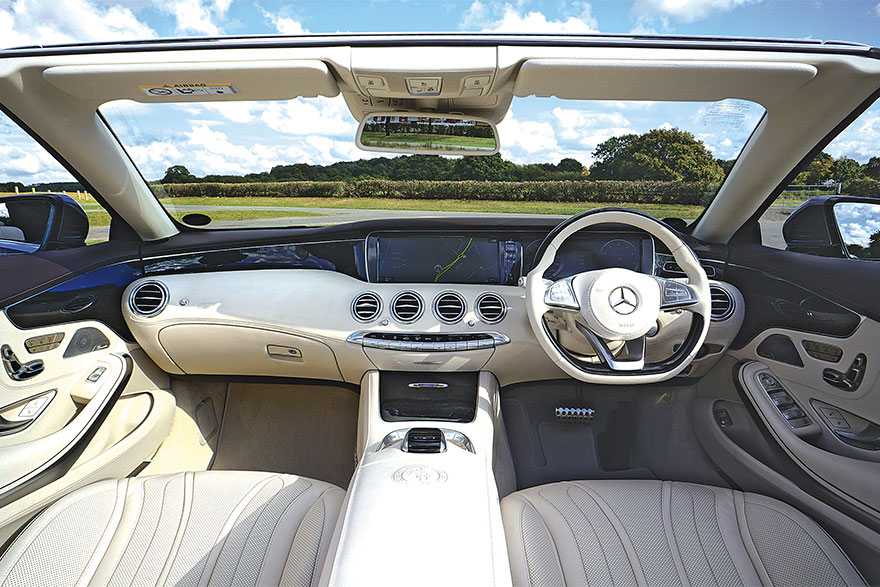German car brands are known for manufacturing high-class vehicles that consistently exceed driver expectations as far as performance and appearance are concerned. This reputation makes these brands the leaders in automotive production worldwide, with many of their marks ranking higher than similar American, Japanese, and Korean car brands
And German car brands also feature a long history of innovative technologies and cutting-edge engineering — advances which were subsequently adopted by other European car companies. Plus, many of these vehicles just look stellar. From supercars to SUVs, these manufacturers have made some of the models that serious gearheads covet.
A BRIEF HISTORY OF GERMAN CAR BRANDS
German car history began in 1870 when Nikolaus Otto and Karl Benz invented the 4-stroke internal combustion engine. These two mechanical engineers helped Germany launch into the automotive production business. By 1901, about 900 cars were being produced annually in Germany. Today, Germany has one of the largest automotive workforces in the world.
According to Worldometers, Germany is the third-largest auto manufacturing country after China and Japan. And these brands aren’t just about quantity, as they also routinely claim top-marks for quality too. In 2021, German car brands claimed three World Car Awards, including the World Car of the Year (Volkswagen ID.4), the World Luxury Car (Mercedes-Benz S-Class), and the World Performance Car (Porsche 911 Turbo).
TOP GERMAN CAR BRANDS: THE TITANS, SLEEPERS, AND HAS-BEENS
When most people think of German car brands, companies such as Audi, BMW, and Mercedes-Benz obviously come to mind. While these are a few of the most well-known German car brands, there are several other manufacturers that you might not have heard of. We’ve rounded up some of the top German car brands currently in operation and a few that have, sadly, ceased production.
AUDI
Audi began production in 1909. Currently headquartered in Ingolstadt, Germany, the company received its name, which means “listen” in German, from its founder, August Horch. In 1932, Audi merged with Horch, Wanderer, and DKW to form Auto Union UG. The four linked rings in the Audi logo come from these four companies. Then, in 1966, Audi became part of the German automobile giant: the Volkswagen Group. In the United States, Audi continues to become more popular each year. They offer a wide variety of vehicles in the American market. Sedans and sportbacks include the A3, A4, A5, A6, A7, A8, RS 3, RS 7, S3, S4, S5, S6, and S7.
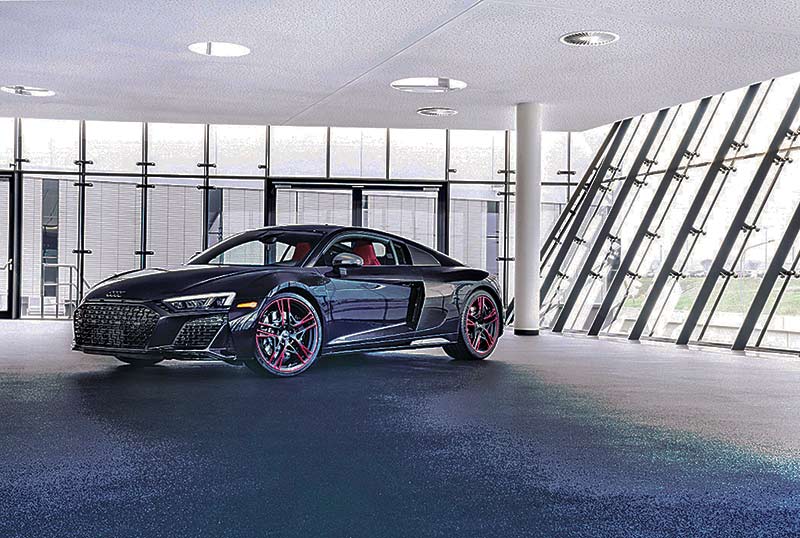
They also sell numerous crossovers and SUVs including the Q3, Q5, Q7, Q8, and e-Tron. As far as their coupes and convertibles, they are known for creating sporty, performance vehicles including the TT and R8 with special runs like the Panther Edition R8 aimed at Audi enthusiasts.
MERCEDES-BENZ
Mercedes-Benz has been in business since 1926. The car manufacturer operates out of Stuttgart, Germany and was founded by Gottlieb Daimler who also worked with Karl Benz. Since its inception, Mercedes-Benz has had a reputation of being a manufacturer of luxury cars.
The Mercedes-Benz logo has become synonymous with quality, emblazoning some of the best cars in the industry.
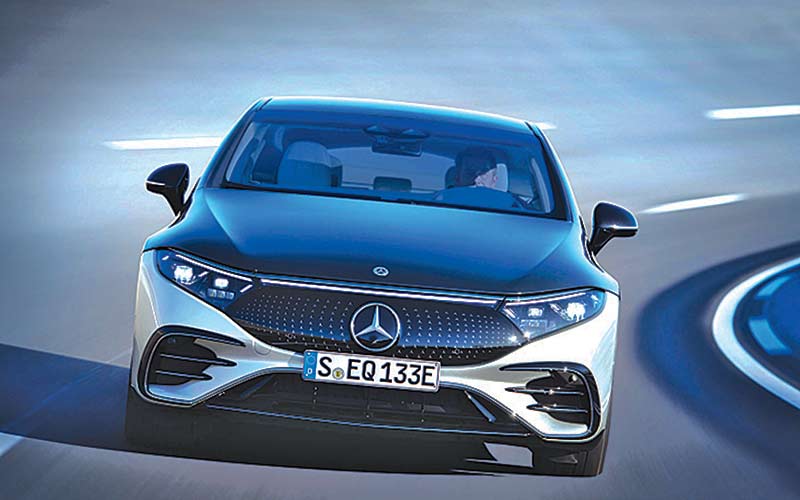
Over the years they’ve produced numerous types of vehicles including trucks, limousines, vans, and buses. In fact, the Mercedes-Benz 600 was a luxury vehicle that became a popular limousine model that was produced from 1964 through 1972.
Mercedes offers some unique car models. Their sedan lineup includes the A, C, E, and S-Class as well as the Maybach. Coupes also include some from the C, E, and S-Class plus the AMG-GT. Their SUV lineup has also grown to include the GLA, GLC, GLE, and GLS. Several of their vehicles are also produced as convertibles. These include the C-Class, E-Class, AGT-GT, plus the SL Roadster.
BMW
BMW has been around since 1916 and is headquartered in Munich, Bavaria. Founded by Franz Josef Popp, BMW stands for Bayerische Motoren Werke (Bavarian Motor Works) and is often recognized instantly by its iconic blue and white roundel logo.
Their greatest successes over the years have come in the realm of handling, horsepower, and performance, solidifying their place amount the best German car brands in the world.
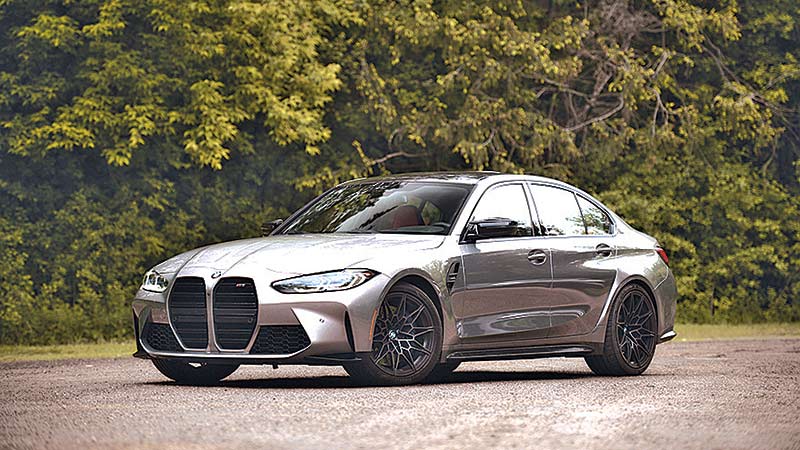
Since its inception, BMW has released many luxury passenger cars, sports cars, and SUVs. BMW USA offers a wide variety of luxury vehicles. They range from the X1-X7, 2-Series to 8-Series, Z4, M Models, i3, i4, and i8.
From comfy daily drivers to modified track-day beasts, the various iterations of BMWs lineup have found a faithful following in both casual drivers and motorsport enthusiasts around the world.
VOLKSWAGEN
Volkswagen has been one of the most popular German car brands since 1937 when Ferdinand Porsche started the company. This automotive giant is currently headquartered in Wolfsburg, Germany. Over the years, Volkswagen went on to acquire other iconic brands such as Bentley, Rolls-Royce, Lamborghini, Bugatti, Skoda, and SEAT.
Though not as flashy or luxurious as some of the other German car brands, Volkswagen has created some wellknown vehicles including the Beetle and the Vanagon.
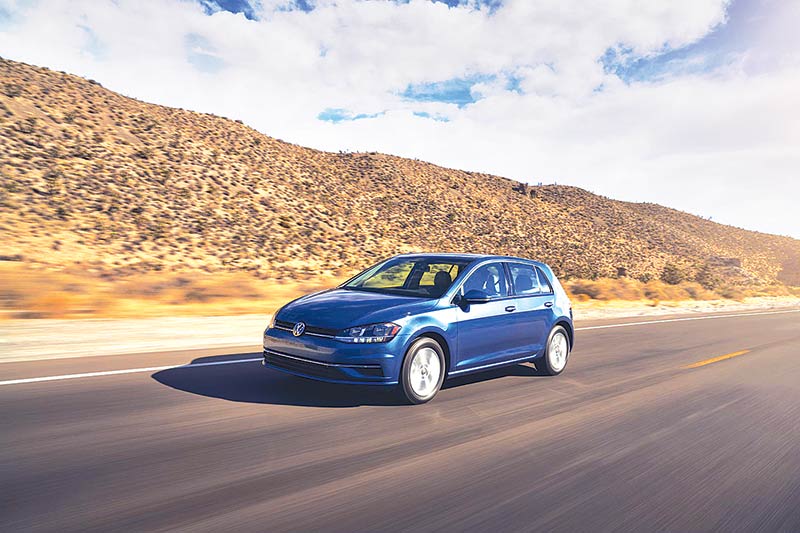
They don’t have as many models as some of the other German car brands, but buyers still have a decent selection of reliable vehicles to choose from.
Volkwagen’s sedans include the Arteon, Passat, Jetta, and Jetta GLI. They also make the Tiguan, Taos, and Atlas SUV models; or if you’re looking for an EV, check out the ID.4, winner of the 2021 Car of the Year. Hot hatch enthusiasts can opt for the Golf or the souped-up Golf GTI.
PORSCHE
Porsche is another well-known German automaker. Founded in 1931 by Ferdinand Porsche, its current headquarters are in Stuttgart, Germany.
Porsche mainly specializes in highperformance sports cars and has gained a lot of its reputation from its factoryracing team. Many older Porsches are worth a good deal of money today. The Porsche 911 has been a mainstay in the sports car world for years.
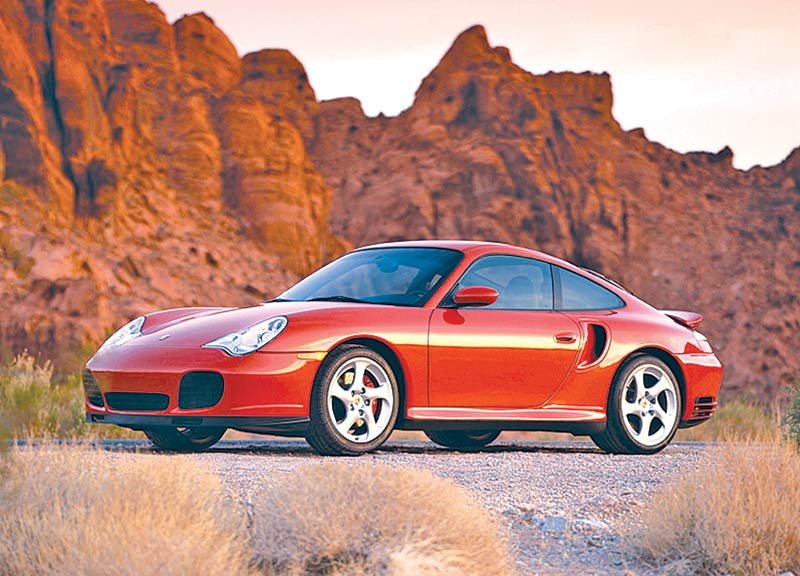
Current sports car models include the 718 Cayman, GTS, Boxster, and Spyder as well as the 911 Carrera, Targa, Turbo, and GT3. Across the board, you have your pick of high-end trim packages and can even opt for a cabriolet (convertible). Porsche also produces a Panamera sedan plus the Macan and Cayenne SUVs as well as its debut play in the EV market, the Taycan.
OPEL
You might not be familiar with this German car brand as Opel currently does not sell any models in the U.S. However, the brand, also known as Adam Opel AG, is popular in Germany with its headquarters in Rüsselsheim.
Founded in 1862 by Adam Opel, the company began by manufacturing bicycles but quickly branched out to release the first vehicle in 1899. Opel grew in popularity from there. At present, the company and its parent brand, Vauxhall, are currently owned by PSA Groupe.
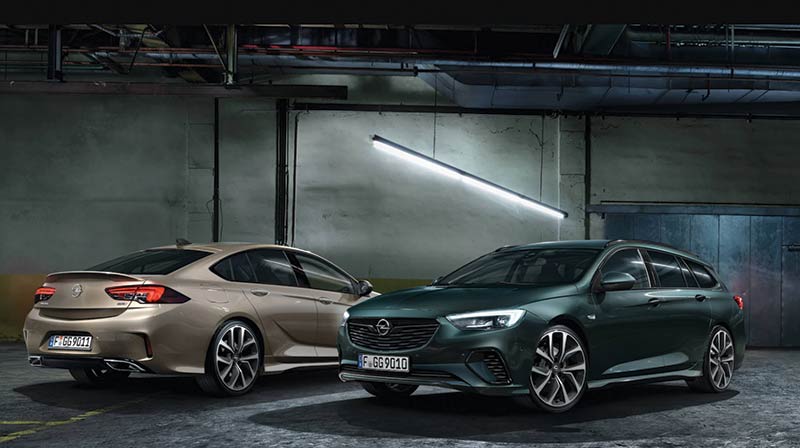
Opel came to the States branded as Buicks. It’s possible you’ve seen some Opel cars in old gangster movies. And you’ve likely spotted the 1969 Opel GT in “Starsky and Hutch” to the 1970 Opel GT in “Criminal Minds.”
At present, the brand makes a solid lineup of cars, SUVs, and even a van. The European market has a choice of the Astra, Corsa, Crossland X, Grandland X, Insignia, and Zafira.
ALPINA
Alpina has been around since 1965 and is currently owned by BMW, with its headquarters in Buchloe, Germany. Though you might not know about this brand, you’ve possibly seen the badging on a BMW. Alpina works closely with BMW to produce high-performance versions of BMW and Mini cars.
The brand is recognized as an automotive manufacturer as opposed to an aftermarket tuner as each Alpina vehicle leaves the assembly line with a unique serial number that differentiates it from its Bimmer counterpart.
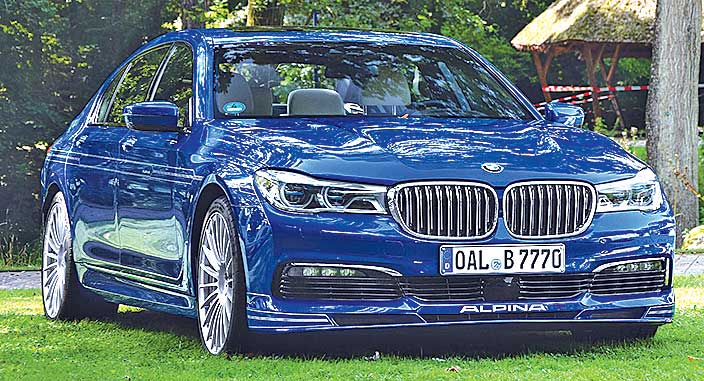
Self-branded as “cars for automotive gourmets,” Alpina isn’t one to churn out a huge quantity of models, but if you do spot one in the wild, it’s sure to turn heads with its bespoke touches — namely their 20-spoke alloy wheels, Alpina Blue metallic paint, the thin, pinstripe styling, and, of course, the Alpina badging. Alpina currently crafts seven sedans (D3 S, B3, XD4, D5 S, B5, B7, and B8) and two SUVs (XB7 and XD3) all finished out with posh touches inside and out.
GUMPERT AIWAYS
Founded in 2004 by Roland Gumpert, Gumpert was originally based in Denkendorf. This niche German car brand had a unique mission from the get-go — to usher in the new generation of sports cars.
Though seemingly ambitious, Gumpert did just that with the Apollo, a streetlegal car that drew praise for its speed and driving feel. Unfortunately, Gumpert never branched out into mass production of the Apollo.
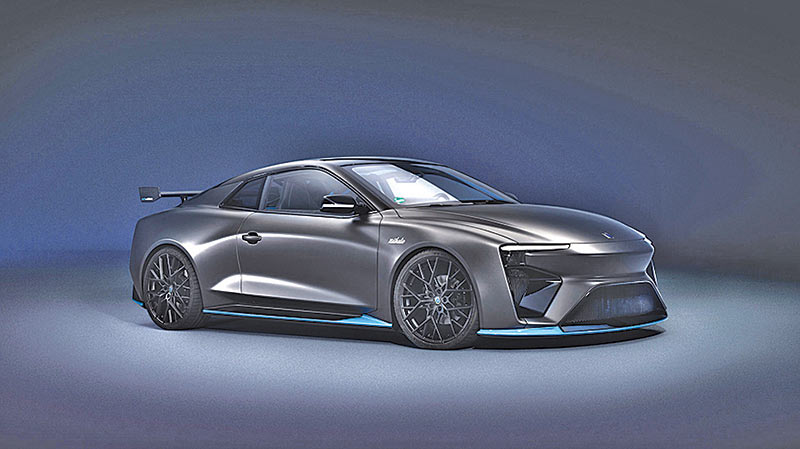
The company filed for bankruptcy in 2013, which ended the production of the Apollo. But 2020 saw the resurgence of the Roland Gumpert name with the Nathalie, which holds the distinction of being the first hydrogen super sports car with a methanol power cell.
This eye-catching EV, coming out of Ingolstadt, has a similar cutting edge vision: “To develop the world’s first electrically-driven super sports car with racing performance and intelligent energy technology.”
ISDERA
This privately-owned German car brand began in 1969 under the direction of Eberhard Schulz. Based in Hildesheim, Germany, the company is also known as “Ingenieurbüro für Styling, Design und Racin” which means “engineering company for styling, design, and racing.”
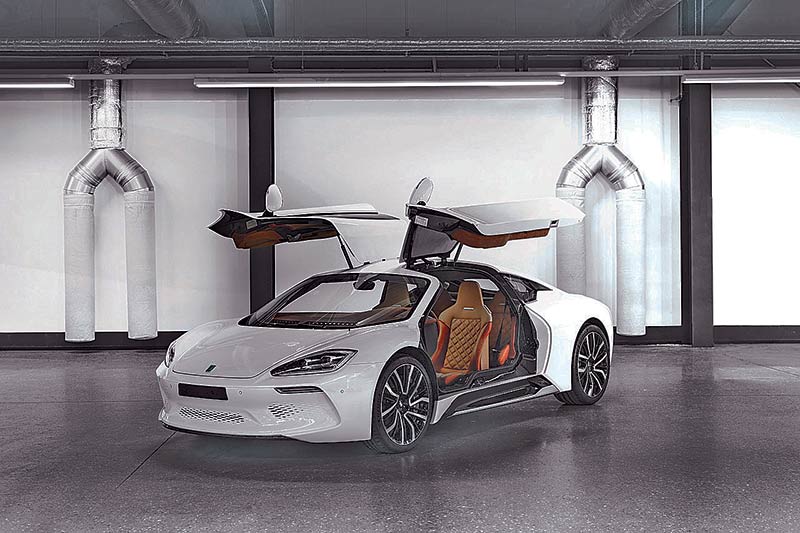
Their main focus is on manufacturing sports cars, but not in the same way most automakers do. Instead, they utilize a small team of automotive craftsmen to build each car. This has led to a fleet of some of the most unique (and rare) cars you can find on the road, including the legendary Isdera Commendatore 112i built in 1993.
At present, the company has shifted its focus to 100% EV with the eye-cathing Commendatore GT as the most recent example of their handiwork.
GERMAN CAR BRANDS: GONE BUT NOT FORGOTTEN
In addition to the current German car brands, a few brands are longer in production but are still worth reminiscing about. Consider yourself lucky if you spot one of these classics on the road.
ADLER
Adler was a German car brand that also produced motorcycles and, before World War II, typewriters. The word Adler means “eagle” in German, and the brand produced vehicles from 1900 to 1957. In their cars, they utilized De Dion 2 and 4-cylinder engines ranging from 1032 to 9081 cc.
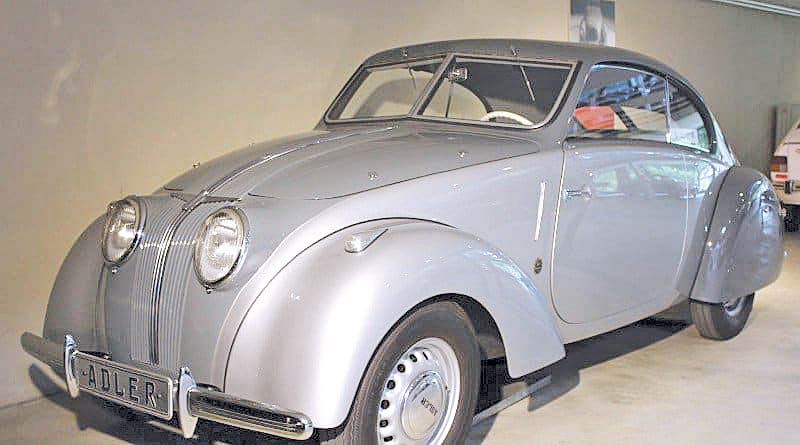
In fact, in 1930, Adler created a lightweight VW prototype featuring a tubular chassis, independent wheel suspension, and a mid-mounted engine. After WWII, they did not resume production of cars but went on to make motorcycles for eight more years. The Adler motorcycle designs were eventually given to Britain and became associated with Triumph.
AUTO UNION AG
Auto Union AG vehicles were in production from 1932 through 1966. The brand later became Audi. Prior to that, Volkswagen owned them for a short time. In the original vehicles, the company focused heavily on two-stroke engines which became less popular during the 1960s.
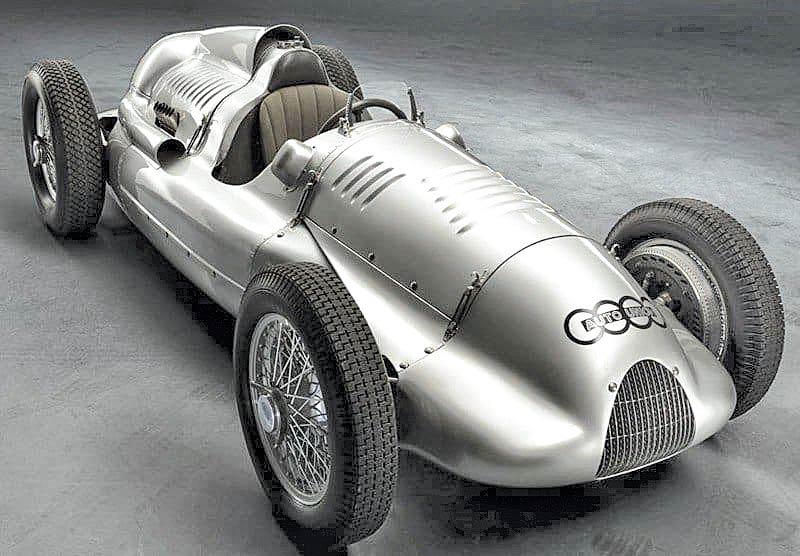
As customers began looking for four-stroke engines, Auto Union AG started selling off shares of the company with help from the West German government.
DKW
You might recognize DKW as one of the German car brands that merged with Auto Union AG. Known as the “steampowered car” or “the little wonder, these vehicles were built from 1916 through 1966. Originally founded by a Danish engineer, DKW’s last car was the F102.
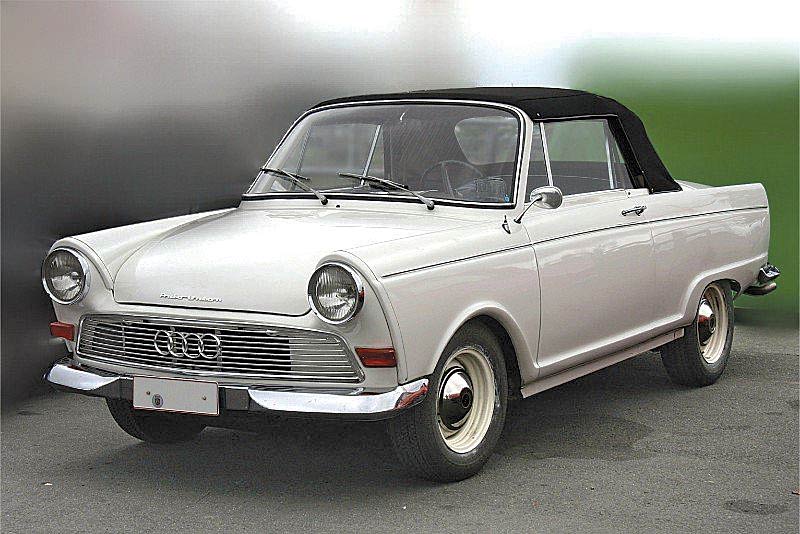
Audi then built the four-stroke F103, its successor. The trademark for the company is still owned by Auto Union GmbH, which is part of Audi AG.
BORGWARD
The Borgward car company was based in Bremen and founded by Carl Borgward. The automaker produced vehicles from 1929 through 1961 and had four brands: Borgward, Goliath, Lloyd, and Hansa. All were sold to international customers.
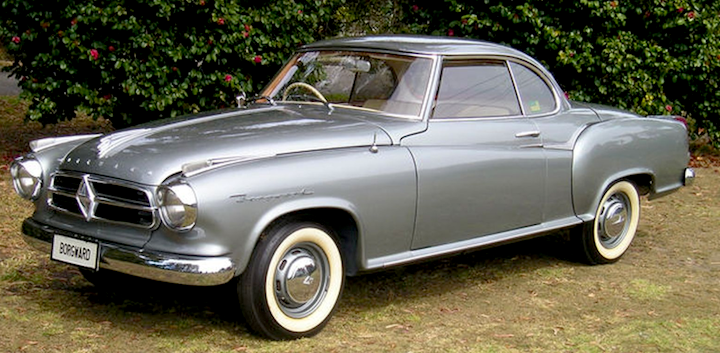
The Borgward Isabella was a popular premium model during the 1950s, often driven by the working-class. In 1961, some controversial insolvency proceedings brought the company to an end. The brand saw a revival during the 21st century through the Borgward Group AG, with manufacturing and design in China instead of Germany.
EISENACHER MOTORENWERK (EMW)
Eisenacher Motorenwerk was a shortlived German car brand, only existing from 1945 through 1956. Most people knew the company, which was based in Eisenach, as EMW.
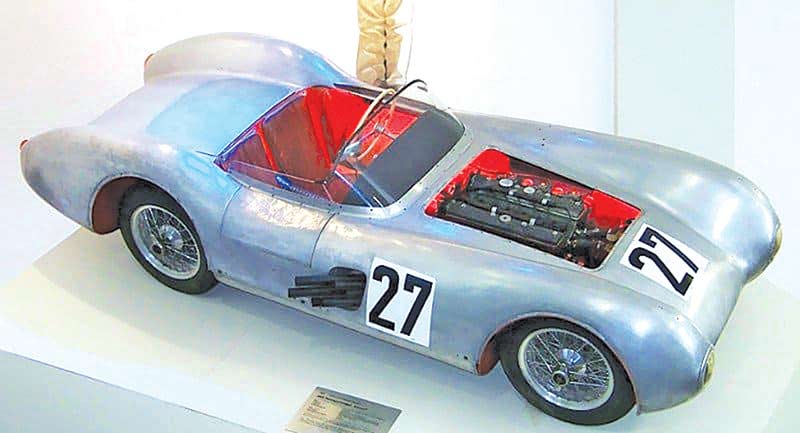
They produced sports cars plus some Formula One cars during the 1950s. EMW was one of the Formula One car builders in 1952, but they didn’t race in more than one event. The vehicle only made 12 laps before ending the race due to exhaust trouble. Prior to WWII, the EMW plant was a BMW factory. After the war ended, the Soviets took over the location. They attempted to continue under the BMW brand but were sued and forced to change the name to EMW. In the end, they closed down due to bankruptcy.
KEINATH
Founded by Horst Keinath in 1983, Keinath was once headquartered in Reutlingen. With a special focus on building race cars, they received some attention while in production for creating a variant of the Opel Monza.
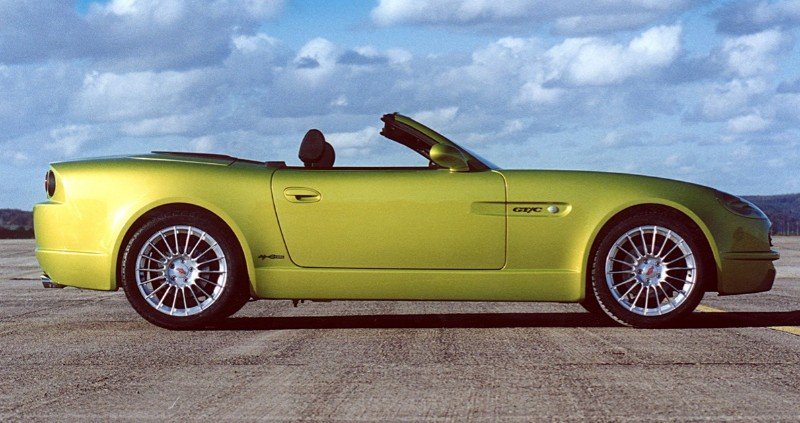
They also created a GTR that was stylish, powerful, and sporty for which the boutique automaker was best and last known for.
THE NUMBERS DON’T LIE: DRIVERS LOVE GERMAN ENGINEERING AND PERFORMANCE
If you take a look at current and recent global car sales numbers, it’s clear that the German car brands aren’t going anywhere in Germany or in the United States. And for good reason, as these German car brands are known for producing high-performance automobiles loved by the general public. They also tend to rank high on reliability and often are leading the field in innovative features. So next time you’re out shopping for a new car, don’t forget to book a test drive with the Germans.
